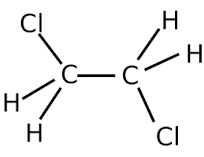 What is the DCA?
What is the DCA?
The chemical compound dichloroethane, commonly known as ethylene dichloride, is a chlorinated hydrocarbon. It is a colorless liquid with a chloroform-like odor.
Uses
Ethylene dichloride is primarily used in the production of vinyl chloride as well as other chemicals. It is used in solvents in closed systems for various extraction and cleaning purposes in organic synthesis. It is also added to leaded gasoline as a lead scavenger. (1) It is also used as a dispersant in rubber and plastics, as a wetting and penetrating agent. (1) It was formerly used in ore flotation, as a grain fumigant, as a metal degreaser, and in textile and PVC cleaning
Sources & Potential Exposure
Exposure to low levels of ethylene dichloride can occur from breathing ambient or workplace air. Inhalation of concentrated ethylene dichloride vapor can induce effects on the human nervous system, liver, and kidneys, as well as respiratory distress, cardiac arrhythmia, nausea, and vomiting. Chronic (long-term) inhalation exposure to ethylene dichloride produced effects on the liver and kidneys in animals. No information is available on the reproductive or developmental effects of ethylene dichloride in humans. Decreased fertility and increased embryo mortality have been observed in inhalation studies of rats. Epidemiological studies are not conclusive regarding the carcinogenic effects of ethylene dichloride, due to concomitant exposure to other chemicals. Following treatment by gavage (experimentally placing the chemical in the stomach), several tumor types were induced in rats and mice.
Federal Regulations
EPA has classified ethylene dichloride as a Group B2, probable human carcinogen


 Americas
Americas Europe
Europe Français
Français Deutsch
Deutsch Italiano
Italiano Español
Español


